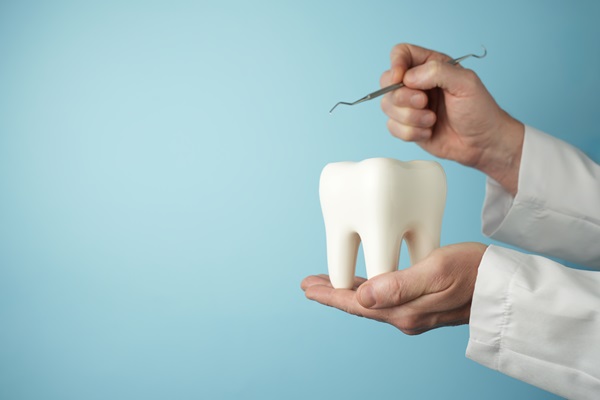Healing Time Length After a Tooth Extraction
An is usually recommended as a last resort when a tooth is too damaged to be saved. The two main types of extractions performed by dentists are simple and surgical extractions. A simple extraction is performed when enough of the tooth is left above the gumline to pull it out with forceps. A surgical extraction is recommended when the dentist needs to make an incision into the patient’s gum tissues to reach the tooth.
Recovering from tooth extraction
Extracting a tooth can be completed in as little as an hour, but the recovery process can take up to two weeks. Some of the more common reasons a dentist might recommend an extraction include:
- Severe damage: A dentist might recommend extracting teeth that have been severely damaged due to issues like tooth decay or trauma to the tooth. It is used as a last resort when the tooth cannot be saved with a dental crown
- Gum disease: A tooth might be extracted if the structures that hold it in place have been damaged by periodontal disease. A dentist might opt to extract it so that the bone structure around it can be repaired while it is replaced with an oral prosthetic
- Crowded teeth: A dentist might also recommend extracting a tooth if a patient does not have enough space on their jaw for all of their teeth or has an extra one. Creating space helps to address any other bite issues the person is dealing with
- Infection: A tooth might be extracted if infection in it threatens to spread to other parts of the body like the brain or heart, where it can have life-threatening consequences
Recovering from teeth extraction
During the procedure, local anesthetics are used, so the patient does not feel pain as their tooth is pulled out. Many patients experience some pain and discomfort once the anesthetic wears off. The pain can be managed with prescription painkillers.
Most of the bleeding from the extraction site should stop within a few hours, but there might be additional bleeding during the first 24 hours. The bleeding stops when a blood clot forms in the socket of the extracted tooth. Keeping this clot intact is one of the most critical things when recovering from an extraction.
The clot becoming dislodged leads to a painful condition called dry socket. Patients are advised not to brush or floss their teeth for the first few days after having a tooth extracted to avoid irritating the extracted tooth’s socket and the blood clot on it.
Most of the pain associated with the procedure should go away within a few days. A week after the procedure, granulation tissues should have formed over the socket, protecting the socket until new bone tissues form there.
You might be better off extracting a tooth
Extractions are typically recommended when other options are not enough to solve a patient’s problems. The extracted tooth can be replaced with oral prosthetics like implants, so you do not have to worry about your smile being ruined. Call or visit our Forest Hills clinic to set up an appointment with our dentist.
Request an appointment here: https://www.dentalimplantsandcosmetics.com or call Perfect Smile Design P.C., Richard H. Lestz, DDS at (718) 544-9100 for an appointment in our Forest Hills office.
Check out what others are saying about our dental services on Yelp: .
Related Posts
You can visit the general dentist for diagnosis and treatment if you are experiencing signs of temporomandibular joint disorder (TMJ). Symptoms include jaw clicking, headaches, tenderness, and pain around the jaw area. TMJ pain can be disruptive to normal living, so it is advisable to visit the dentist as soon as possible for help.The joints…
When it comes to restoring damaged or weakened teeth, dental crowns provide an effective and lasting solution. Dental crowns are custom-made caps placed over a tooth to restore shape, size, strength, and appearance. Understanding the different types of dental crowns available can help patients make informed decisions about their dental care.Porcelain crowns are crafted entirely…
A family dentist provides comprehensive dental care for patients of all ages, making it convenient to address the oral health needs of everyone in the family. From preventive services for children to restorative and cosmetic treatments for adults, a family dentist ensures each family member enjoys a healthy, radiant smile. By focusing on personalized care…
In recent years, clear braces have been a preferred method of straightening teeth. People of all ages can enjoy the benefits these braces provide. However, if you are not careful, yellow and brown stains can appear on them, making the braces stand out. If you follow some basic guidelines, you can maintain their invisibility.There was…
